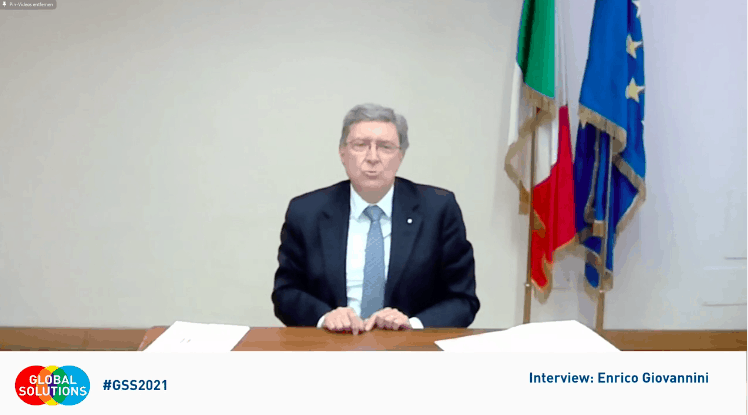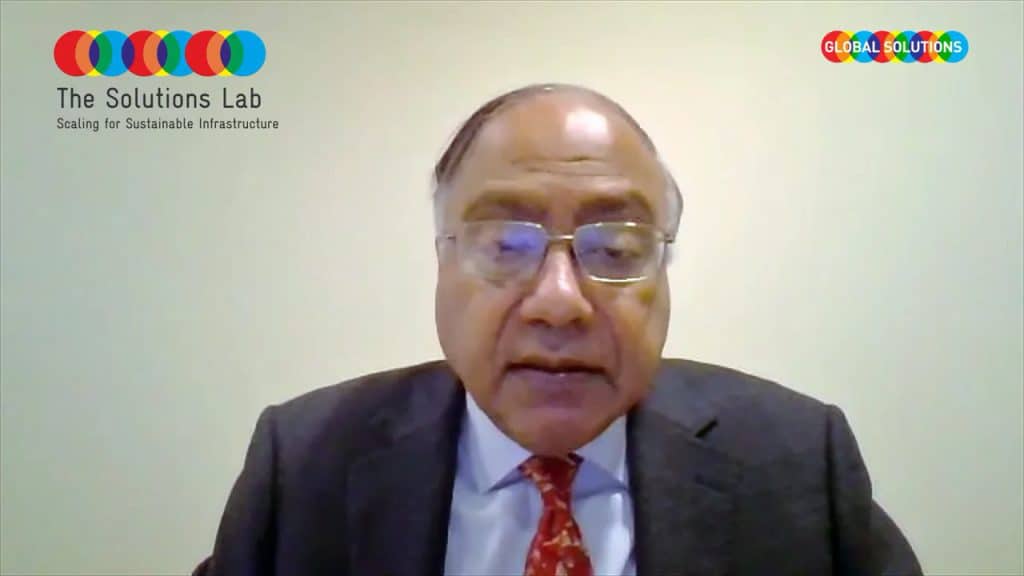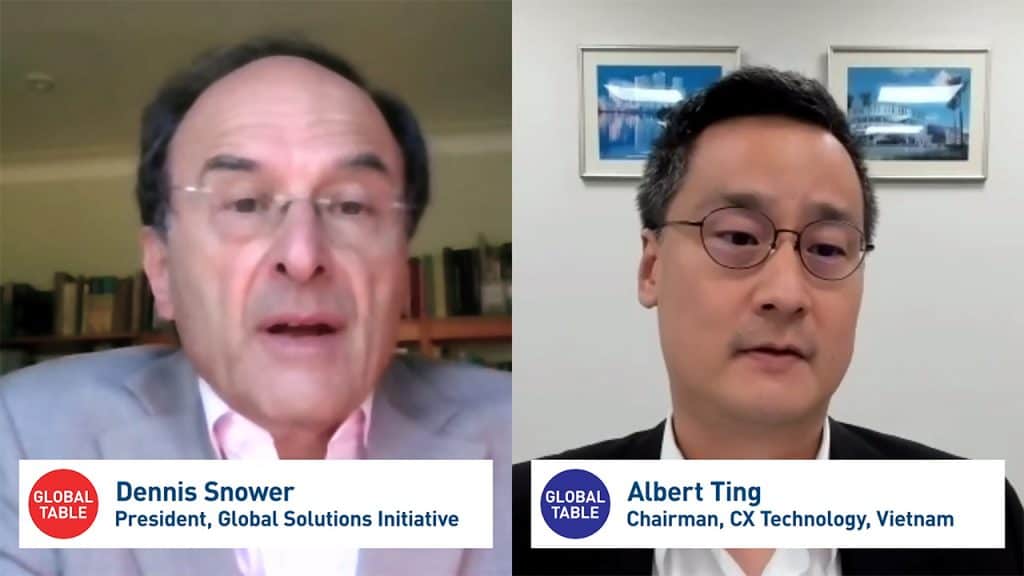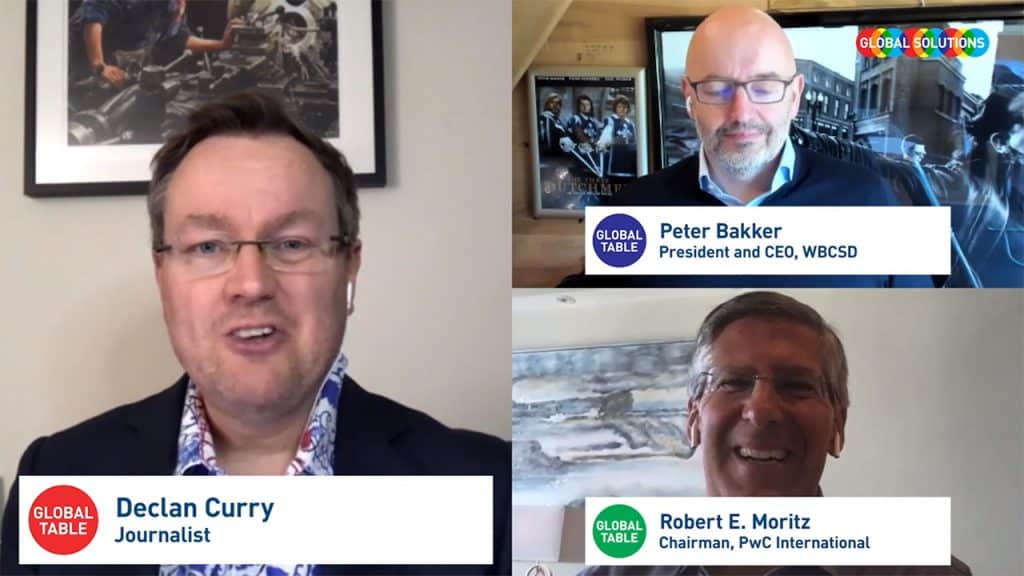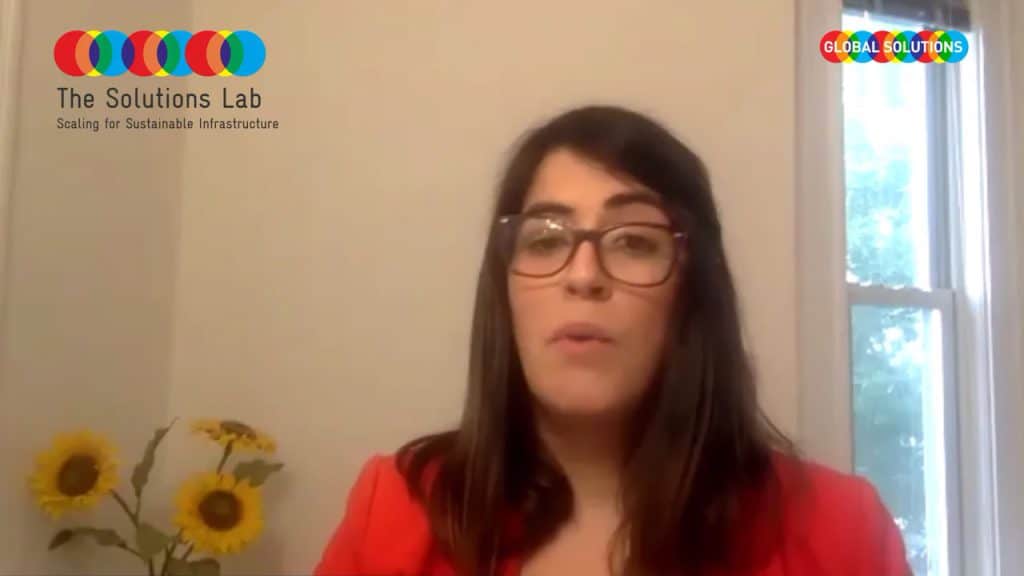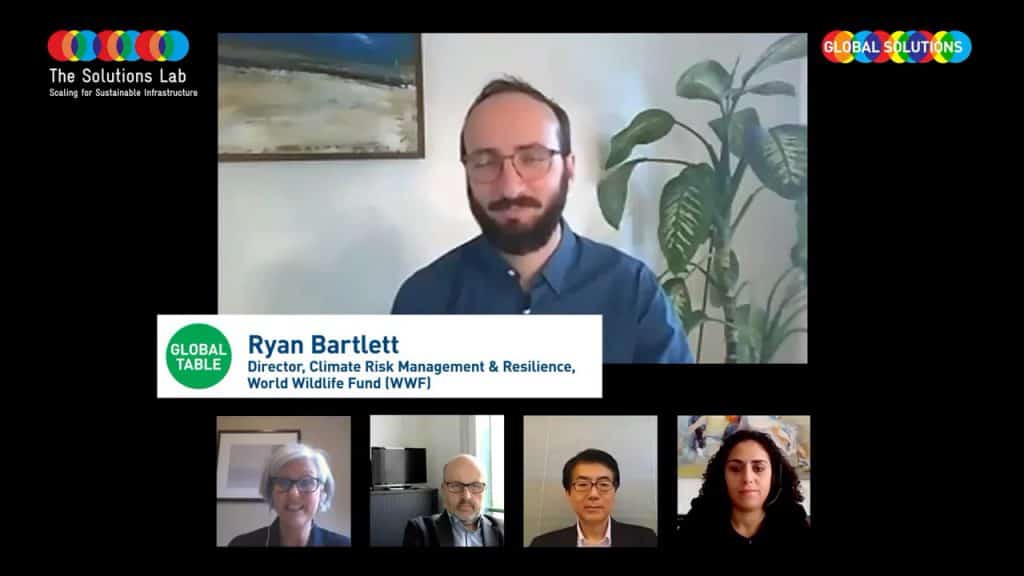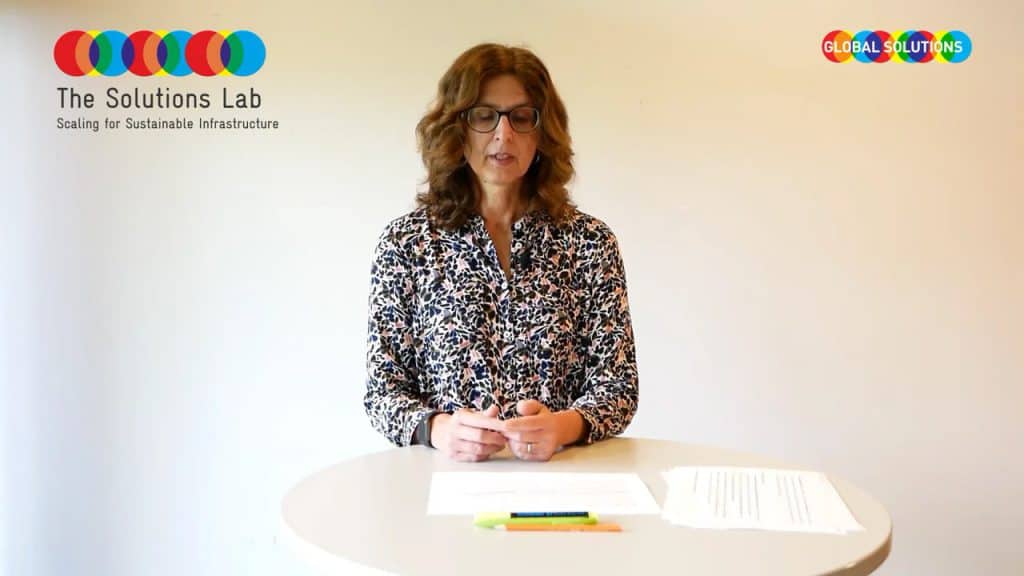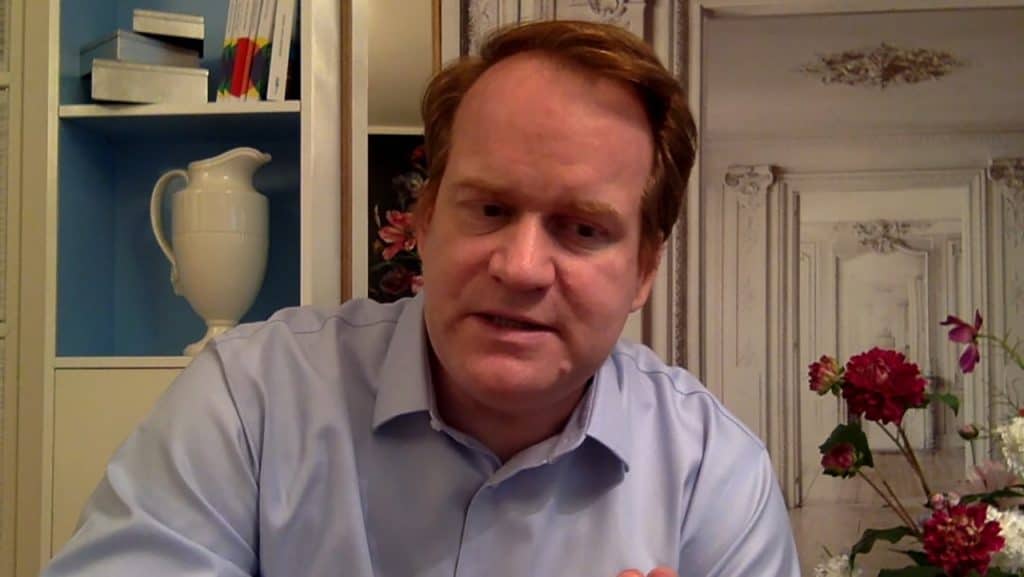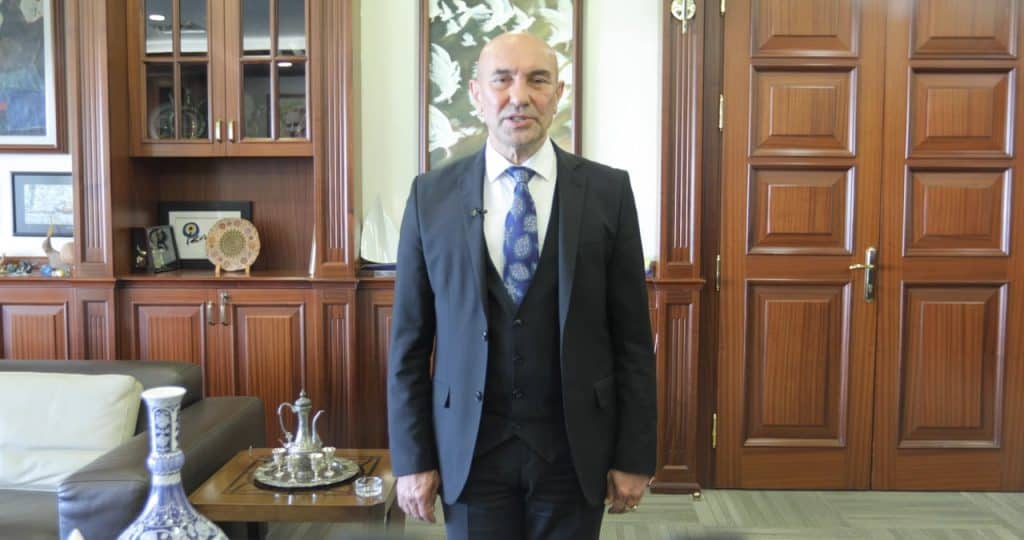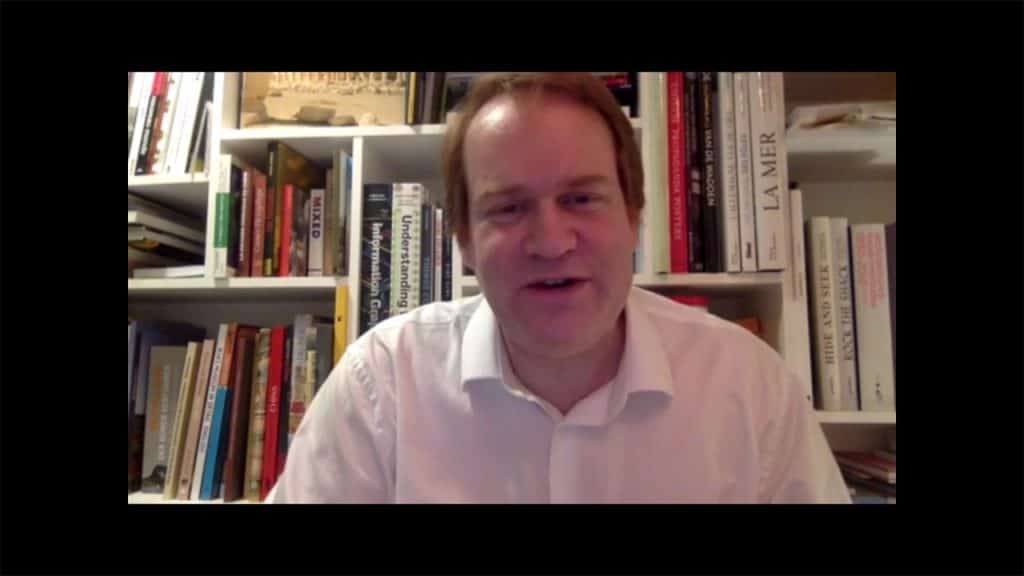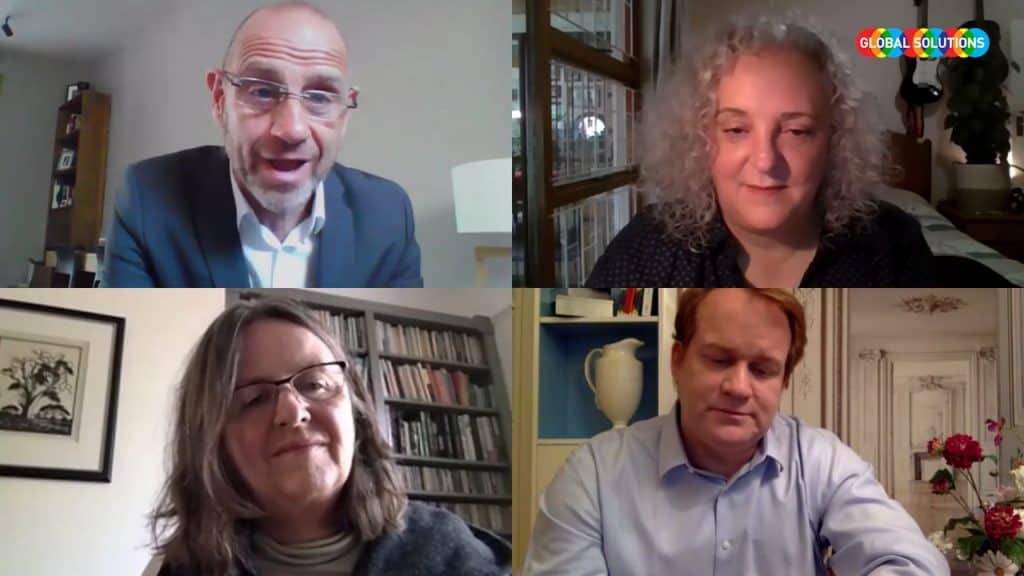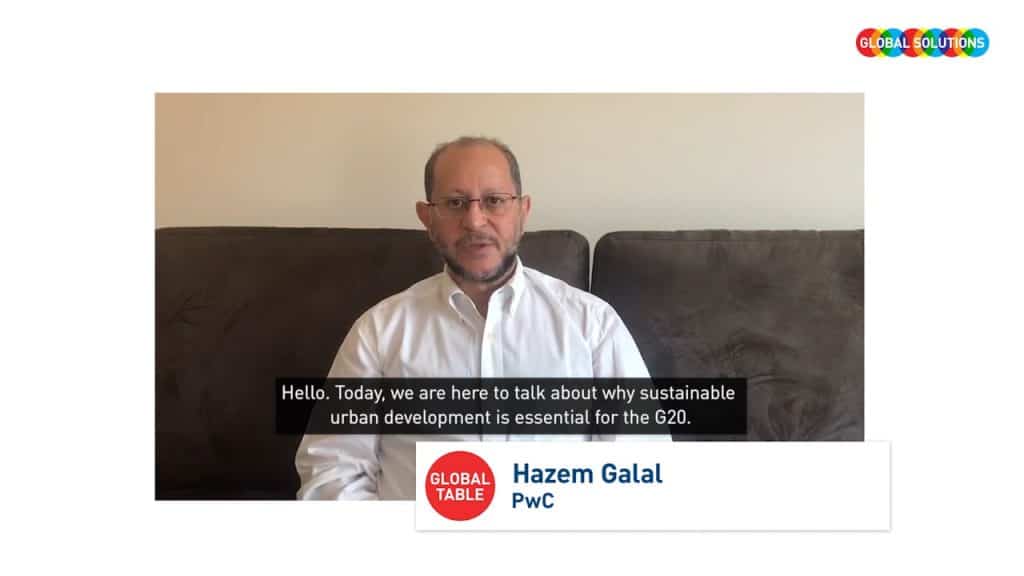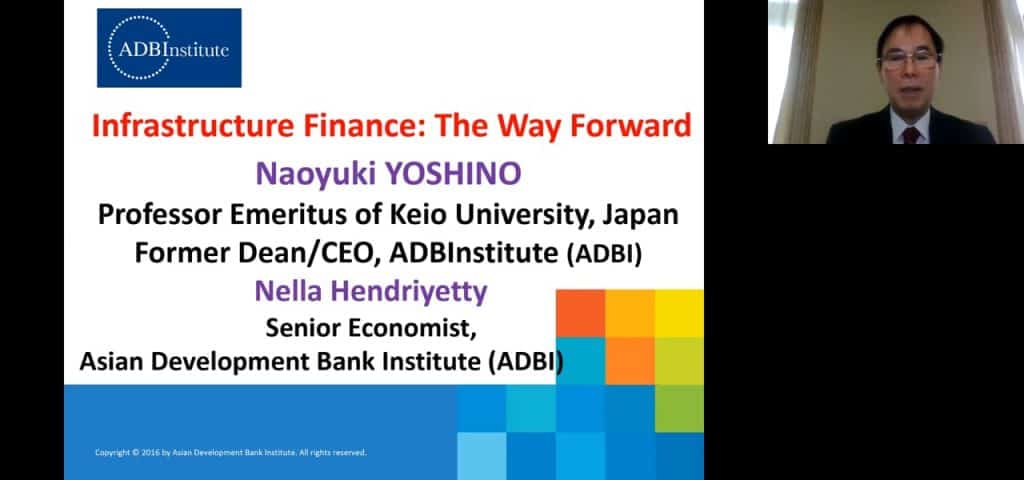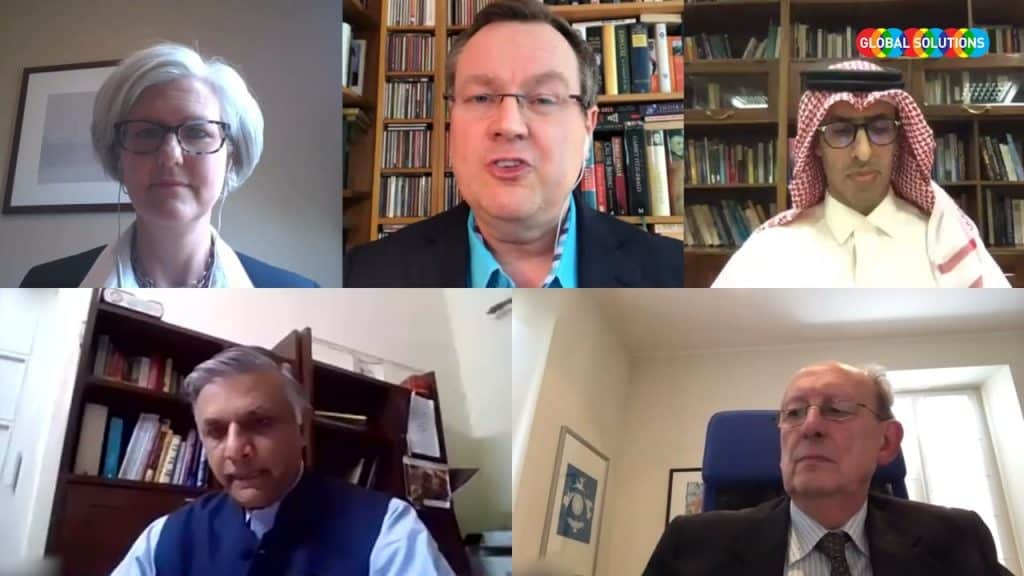Policy Briefs
Sustainable and Resilient Agricultural Value Chains: Addressing Multiple Vulnerabilities With a New Partnership Approach Mehmet Sait Akman - G20 Studies Centre, The Economic Policy Research Foundation of Turkey (TEPAV), Fabrizio Botti - Istituto Affari Internazionali (IAI), Clara Brandi - German Development Institute / Deutsches Institut für Entwicklungspolitik (DIE), Michael Brüntrup - German Development Institute / Deutsches Institut für Entwicklungspolitik (DIE) , Markus Dietrich - GIZ - Inclusive Business Action Network (iBAN), Ilaria Espa - University Lugano, Andreas Freytag - Friedrich-Schiller University of Jena, University of Stellenbosch, Robert Koopman - World Trade Organization, Stormy Mildner - Aspen Institute Germany, Bettina Rudloff - German Institute for International and Security Affairs / Stiftung Wissenschaft und Politik (SWP)
Advancing Climate Resilience And Environmental Objectives In Infrastructure Planning, Development And Finance Yannick Autret - Project Biodiversity and Infrastructure Opportunities for European Transport Network (BISON), Ryan Bartlett - World Wildlife Fund, , Raffaele Della Croce - Organization for Economic Co-operation and Development (OECD), Evan Freund - WWF, Linda Krueger, Kate Newman - WWF, Sophie Menard - CDC Biodiversité, Beatriz Nofal - EcoAxis, Anna Willingshofer
A Path To Zero-Emission Vehicles And Greener Infrastructure Development In Indonesia Aditya Mahalana - International Council on Clean Transportation (ICCT), Francisco Posada - International Council on Clean Transportation (ICCT), Tim Dallmann - International Council on Clean Transportation (ICCT), Tenny Kristiana - International Council on Clean Transportation (ICCT), Chelsea Baldino - International Council on Clean Transportation (ICCT), Josh Miller - International Council on Clean Transportation (ICCT), Adhi Triatmojo - International Council on Clean Transportation (ICCT)
Addressing The High Debt Gridlock To Support Post- Covid Inclusive Development In Low And Middle Income Countries Linda Faustina Arthur, , Muhammad Khurram Khan - Center of Excellence in Information Assurance (CoEIA) King Saud University, Kingdom of Saudi Arabia, Michael Cohen - Milano School of Policy, Management, and Environment, Edoardo Croci - Bocconi University, Priyadarshi Dash - Research and Information System for Developing Countries (RIS), Sukhmani Kaur - Research and Information System for Developing Countries (RIS), Valeria Lauria, Raja Al Marzoqi, Siddhi Sharma - Research and Information System for Developing Countries (RIS)
Big Data Analytics For Safe, Decarbonised And Climate-Resilient Infrastructure Raffaele Della Croce - Organization for Economic Co-operation and Development (OECD), Thorsten Jelinek - Taihe Institute, Europe Center, Valeria Lauria, Michael Bühler - Konstanz University of Applied Sciences (Lead author), Fulvio Bersanetti - Fondazione Compagnia San Paolo, Konrad Nübel - Technical University Munich (Core team), Francesco Profumo - Polytechnic Turin, Konstantin Scheffezyk - Konstanz University of Applied Sciences
Enhancing Infrastructure Provisions To Address The Digital Divide Teuku Riefky - University of Indonesia (LPEM FEB UI), Artidiatun Adji - Unit Penelitian dan Pelatihan Ekonomika dan Bisnis, Gadjah Mada University, Bayu Aji Aritejo - Unit Penelitian dan Pelatihan Ekonomika dan Bisnis, Gadjah Mada University, Fauziah Zen - ERIA, Riatu Mariatul Qibthiyyah - Institute for Economic and Social research, Faculty of Economics and Business, University of Indonesia (LPEM-UI)
Intergrated Sustainable Waste Management And Financing Framework: A Call For Collaboration Among Local Government, Central Government, Multiversal Agencies And Private Institutions Eko Nur Surachman - State Finance Polytechnic, Indonesia, Dian Handayani - State Finance Polytechnic, Indonesia, Maman Suhendra - State Finance Polytechnic, Indonesia, Sakti Prabowo - State Finance Polytechnic, Indonesia, Lestari Kurniawati - State Finance Polytechnic, Indonesia, Agung Dinarjito - State Finance Polytechnic, Indonesia, Ricky PH
Overlapping, Competing Or Complementary. Comparing International Infrastructure Plans To Foster National Development And International Cooperation Shamshad Aktar - Karandaaz Pakistan, Naoyuki Yoshino - Financial Research Centre, FSA Institute, Alessandro Gili - Istituto per gli studi di politica internazionale (ISPI), Filippo Fasulo - Italian Institute for International Political Studies, Alberto Rizzi - Italian Institute for International Political Studies, Carlo Secchi - Italian Institute for International Political Studies (ISPI), , Murat Kenanoğlu - Economic Policy Research Foundation of Turkey, Iskandar Abdullaev - Central Asia Regional Economic Cooperation (CAREC), Milindo Chakrabarti - Center for Sustainability, O.P. Jindal Global University, Sonipat, India, Teuku Riefky - University of Indonesia (LPEM FEB UI)
Planning And Investment In Efficient And Inclusive Infrastructure And Supply Chains In Post-COVID-19 Recovery Anita Prakash - Economic Research Institute for ASEAN and East Asia (ERIA), Hafida Fahmiasari - STC International, Mochammad Imron - Pelindo, Arzena Norega - Pelindo, Murti Lestari - Center for Transportation and Logistics Studies of Gadjah Mada University, Nur Yuwono - Department of Civil and Environmental Engineering of Gadjah Mada University, Dwi Ardianta Kurniawan - Center for Transportation and Logistics Studies of Gadjah Mada University
Promoting Resilient Infrastructure And Public-Private Partnerships Yohanna Gultom - The Institute for Economic and Social Research, Faculty of Economics and Business, University of Indonesia, Teuku Riefky - University of Indonesia (LPEM FEB UI), Fauziah Zen - ERIA, Hengki Purwoto - Unit Penelitian dan Pelatihan Ekonomika dan Bisnis, Gadjah Mada University, Pratomo Ismujatmika - PT Penjaminan Infrastruktur Indonesia (Persero), Dally Ramdhan Sugandria - PT Penjaminan Infrastruktur Indonesia (Persero), Rayka Abdillah Hagqi - PT Penjaminan Infrastruktur Indonesia (Persero), Yunan Novaris - PT Penjaminan Infrastruktur Indonesia (Persero), Muhammad Riza Prayudhia - PT Penjaminan Infrastruktur Indonesia (Persero), Muhammad Jibril - PT Penjaminan Infrastruktur Indonesia (Persero)
Realising The Potential Of National Development Banks And Foundations In Scaling Up Green And Inclusive Infrastucture Fulvio Bersanetti - Fondazione Compagnia San Paolo, Nicolas Buchoud - Grand Paris Alliance for Metropolitan Development, Raffaele Della Croce - Organization for Economic Co-operation and Development (OECD), Milindo Chakrabarti - Center for Sustainability, O.P. Jindal Global University, Sonipat, India, Carla Patrizia Ferrari - Fondazione Compagnia di San Paolo, Valeria Lauria, Paolo Mulassano - Fondazione Compagnia di San Paolo, Francesco Profumo - Polytechnic Turin, Jiajun Xu - Institute of New Structural Economics, Peking University
Thinking ‘Outside The Box’ On Infrastructure Planning: Lessons For Development Of New Capital City Of Indonesia Priyadarshi Dash - Research and Information System for Developing Countries (RIS), Sukhmani Kaur - Research and Information System for Developing Countries (RIS), Linda Krueger, Ulfa Mutaharah - Civil Engineering, University of Indonesia, Pramada Saputra - Project and Supply Chain Management, University of Manchester, Siddhi Sharma - Research and Information System for Developing Countries (RIS), Oktaviani Turbaningsih - Department of Civil Engineering, Institut Teknologi Sepuluh Nopember, Anna Willingshofer, Freda Yawson - African Center for Economic Transformation
G20 support for improved infrastructure project cycles in Africa Priyadarshi Dash - Research and Information System for Developing Countries (RIS), Paulo Esteves, Rob Floyd, Arthur Minsat - Development Center, Organization for Economic Co-operation and Development (OECD), Aloysius Uche Ordu - SAfrica Growth Initiative, Brookings Institution, Cobus van Staden - South Africa Institute of International Affairs (SAIIA)
Digitally enhanced infrastructures: A three-dimensional approach Muhammad Khurram Khan - Center of Excellence in Information Assurance (CoEIA) King Saud University, Kingdom of Saudi Arabia, Priyadarshi Dash - Research and Information System for Developing Countries (RIS), Andrey Filippov - ICENTERO, Chinny C. Ogunro - WellSpring Health, Dimitris Psarrakis, Veronica Vecchi - Bocconi School of Management, Vladimir Yakunin
A regional connectivity partnership for the Mediterranean Raffaele Della Croce - Organization for Economic Co-operation and Development (OECD), Karim El Aynaoui - Policy Center for the New South, Youssef El - Policy Center for the New South, Alessandro Gili - Istituto per gli studi di politica internazionale (ISPI), Alin Horj - Organization for Economic Co-operation and Development (OECD), Murat Kenanoğlu - Economic Policy Research Foundation of Turkey, Carlo Secchi - Italian Institute for International Political Studies (ISPI)
Success path for resilient cities Adam C. Bouloukos - United Nations Development Programme, Erna Gevondyan, John Hummel, Sara Lechtenberg-Kasten - King Abdullah Petroleum Studies and Research Center (KAPSARC)
Risk mitigation tools to crowd in private investment in green technologies Mahmoud Arbouch - Policy Center for the New South, Otaviano Canuto - Policy Center for the New South, Raffaele Della Croce - Organization for Economic Co-operation and Development (OECD), Karim El Aynaoui - Policy Center for the New South, Youssef El - Policy Center for the New South, Miguel Vazquez - SDA School of Management, Bocconi University
A new vision for Infratech: Governance and value network integration through federated data spaces and advanced infrastructure services for a resilient and sustainable future Michael Bühler - Konstanz University of Applied Sciences (Lead author), Thorsten Jelinek - Taihe Institute, Europe Center, Konrad Nübel - Technical University Munich (Core team), Norman Anderson - CG/LA Infrastructure, Glenn Ballard - UC Berkeley, Mark Bew - PCSG Limited, David Bowcott - Aon Risk Solutions, Kai Broek - Capgemini Invent, Gerd Buziek - Esri Deutschland GmbH, Isabel Cane, Raffaele Della Croce - Organization for Economic Co-operation and Development (OECD), Harry Dimitriou - University College London, Dale Evans - Project13, Jeff Herriman - Ascentage Group, LLC, Volker Kefer - Verein Deutscher Ingenieure, Isidora Kosta - World Economic Forum, Thomas Maier - G20 Global Infrastructure Hub, Ibrahim Odeh - Columbia University, Rafael Sacks - Technion Israel Institute of Technology, Hajnalka Vaagen - Norwegian University of Technology, Thomas Schmid
Building a new sustainable economy. Investing in infrastructure for distribution and well-being Iskandar Abdullaev - Central Asia Regional Economic Cooperation (CAREC), Shakhboz Akhmedov - Central Asia Regional Economic Cooperation (CAREC), Raja Almarzoqi Albqami - International Monetary Fund (IMF), Yannick Autret - Project Biodiversity and Infrastructure Opportunities for European Transport Network (BISON), Ryan Bartlett - World Wildlife Fund, , Milindo Chakrabarti - Center for Sustainability, O.P. Jindal Global University, Sonipat, India, Michael Cohen - Milano School of Policy, Management, and Environment, Edoardo Croci - Bocconi University, John Hauert - GIZ GmbH, Irina Karapetyants - The Institute of International Transport Communications, Russian
University of Transport (MIIT), Elisabeth Losos - Nicholas Institute for Environmental Policy Solutions, Duke University, Riatu Mariatul Qibthiyyah - Institute for Economic and Social research, Faculty of Economics and Business, University of Indonesia (LPEM-UI), Kate Newman - WWF, Beatriz Nofal - EcoAxis, Bart Orr - The New School, Tetsushi Sonobe - Asian Development Bank Institute, Christian Wertli - Swiss Re
Maintaining resilient infrastructure systems Caroline Evans - Arcadis Australia Pacific, Alin Halimatussadiah - The Institute for Economic and Social Research, Faculty of Economics and Business, Universitas Indonesia, Jean-Bernard Kovarik - Université Gustave Eiffel, Juan Fernando Mendoza Sánchez, Fabien Palhol - CEREMA, Fabio Pasquali - ANAS Italian State Road Agency, Teuku Riefky - University of Indonesia (LPEM FEB UI), Yusuf Sofiyandi Simbolon - The Institute for Economic and Social Research, Faculty of Economics Business, Universitas Indonesia, Monica Starnes - Transportation Research Board - TRB, Ibnu Syabri - Urban and Regional Infrastructure Research Group ITB, Teguh Yudho Wicaksono - Mandiri Institute, Fauziah Zen - ERIA
Impact of sea-level rise and extreme events on infrastructure development in global trade and logistics supply chain Nora Nezamuddin - King Abdullah Petroleum Studies and Research Center (KAPSARC), Christa Sys - University of Antwerp, Thierry Vaneislander - University of Antwerp, Athena Roumboutsos - University of the Aegean, Franklin Konuah - University of Antwerp, Aris Christodoulou - JRC - European Commission, Hande Demirel - Istanbul Technical University, Lama Yaseen - King Abdullah Petroleum Studies and Research Center (KAPSARC), Anna Laura Petrucci - Dar Al Ulum University
Defining the role of automated transportation infrastructure in shaping sociotechnical systems Christian Long - STRATYS, Anne Aguilera - Université Gustave Eiffel, Fabio Antonialli - École Centrale Supélec – Université Paris-Saclay, Jean-Claude Cohen - STRATYS, Aix-Marseille University, Olivier Fourcadet - ESSEC Business School, Philippe Gache - Renault Trucks, Eric Hsu - University of South Australia, Katherine Kortum, Barbara Lenz - DLR – German Aerospace Center, Jean-Bernard Kovarik - Université Gustave Eiffel, Charles Raux - Centre National de la Recherche Scientifique (CNRS), Serge Salat - Urban Morphology and Complex Systems Institute, Johanna Zmud - Texas A&M Transportation Institute (TTI)
Africa’s infrastructure finance Mahmoud Arbouch - Policy Center for the New South, Otaviano Canuto - Policy Center for the New South, Miguel Vazquez - SDA School of Management, Bocconi University
The wider economic impacts of transportation infrastructure Corinne Blanquart - Université Gustave Eiffel, Chia-Lin Chen - Department of Geography and Planning, University of Liverpool, Jose Maria de Urena - University of Castilla La Mancha, Marie Delaplace - Université Gustave Eiffel, Pascal Gastineau - Université Gustave Eiffel, Martin Koning - Université Gustave Eiffel, Gernot Liedtke - German Aerospace Center (DLR) and Technical University Berlin, Francesca Pagliara - Department of Civil, Architectural and Environmental Engineering, University of
Naples Federico II, Naoyuki Yoshino - Financial Research Centre, FSA Institute
Evaluating resilient infrastructure sytems Jean-Bernard Kovarik - Université Gustave Eiffel, Caroline Evans - Arcadis Australia Pacific, Bruno Godart - Université Gustave Eiffel, Juan Fernando Mendoza Sánchez, Fabien Palhol - CEREMA, Monica Starnes - Transportation Research Board - TRB
Shaping the new frontiers of sustainable (urban) infrastructure: Reviewing the long-term value of infrastructure investments and enabling system change , Ryan Bartlett - World Wildlife Fund, Edoardo Croci - Bocconi University, Paramita Datta Dey - National Institute of Urban Affairs, Nicolas Hautiere - COSYS Lab, Université Gustave Eiffel, Arjan Hijdra - Global Infrastructure Institute, Irina Karapetyants - The Institute of International Transport Communications, Russian
University of Transport (MIIT), Lori Benita Kerr, Sergei Kirpotin - Tomsk State University, T-Mosaic, Tatiana Kolesnikova - Tomsk State University, Beatriz Nofal - EcoAxis, Mariana Silva - Interamerican Development Bank (IDB), Laurin Baptiste Wuennenberg - International Institute for Sustainable Development (IISD)



